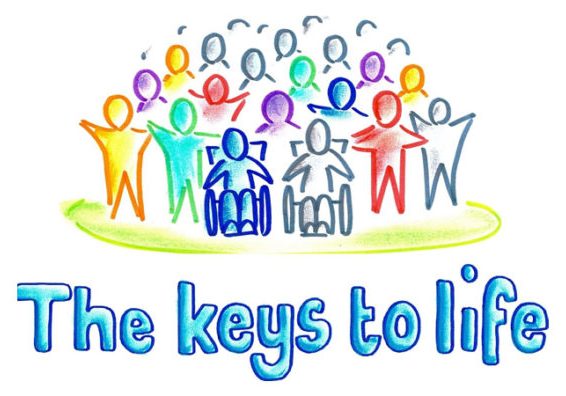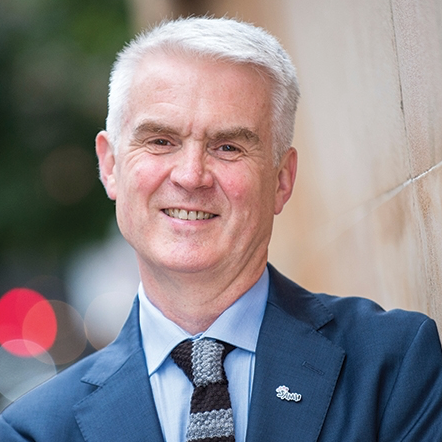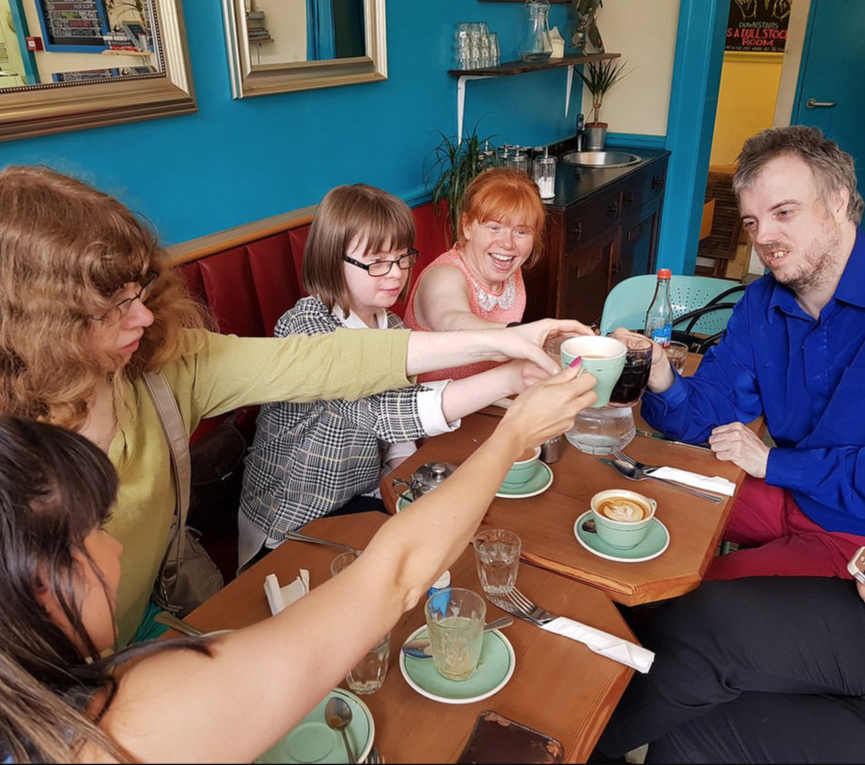Fixing urgent problems in the short term matters. But it isn’t enough for future generations
12 December 2018
Chris Creegan, Chief Executive of the Scottish Commission for Learning Disability, responds to Call 9 of our 25 Calls campaign.
Call 9: Ensure Scotland's next generation can lead active, healthy lives
We are living through a period of significant change in the lives of people with learning disabilities in Scotland. But are we doing enough to accelerate that change? And are we focusing our attention where it matters?
Little more than a generation ago, substantial numbers of people with learning disabilities were living in large-scale institutions – hospitals – shut away. Out of sight, out of mind. And just half a generation ago the last of those institutions closed.

People with learning disabilities experience significant health inequalities compared with other people, and barriers accessing health care and services. That’s why The keys to life, Scotland’s learning disability strategy, has a strong emphasis on changing those things (click here to find out more).
The term ‘once in a generation opportunity’ has become something of a cliché in our public discourse. But in relation to people with learning disabilities, we really do have one. And we need to raise our gaze to the future.
There is, of course, a lot we can – and must – do now. This includes making sure that those with complex needs who are in placements far from home are able to return to their own communities. That’s where the vast majority of people with learning disabilities now live – and everyone should be able to if that’s their wish.
But in focusing on fixing problems in the short term, we shouldn’t lose sight of what we want the lives of people with learning disabilities to look like in the future. Not just in five or ten years but at the end of the 21st century. Decisions – and interventions – we make now can ensure that they will be unrecognisable when compared with those at the millennium.
Where people live, the opportunities they have to learn and what they do in adult life – including work where that’s achievable – will all have a significant impact on their health.
Now the millennials with learning disabilities are coming of age. Those born since that closure will do so during the next decade. What we do for every person with a learning disability in Scotland matters, and what we do for – and with – this generation will have a profound impact on the next and those that follow.
And when we listen to people with learning disabilities, they tell us that they still experience significant challenges in getting the healthcare they need. At worst, we know this can lead to preventable deaths. That too needs our attention now.
But unless we also focus on early intervention and on the social determinants of health – the conditions in which people are born, grow, work, live, and age, and the wider set of forces and systems shaping the conditions of their daily lives - those inequalities will reoccur and be reinforced for generations to come.
So when we think about how we ensure the next – and succeeding – generations of people with learning disabilities are to be able to live active and healthy lives, we have to think long-term and whole system. Where people live, the opportunities they have to learn and what they do in adult life – including work where that’s achievable – will all have a significant impact on their health.
That’s why living a healthy life and active citizenship are two of The keys to life’s four strategic outcomes. But it’s also why increasingly our policy – and delivery – must focus on participation in the community – in sporting, cultural and other activities, on accessible housing which enables independent living, on inclusion in mainstream education throughout childhood, and on supporting people into work wherever possible.
People with learning disabilities are not just service users or patients – they are people, citizens. They will be able to flourish and thrive – and lead healthier and more active lives – if that is at the forefront of our policy thinking.
This mustn’t be at the expense of improving social care. For some people with learning disabilities that will continue be the main means by which they can lead active, healthy lives. And there will always be issues which need to be dealt with in the here and now. There may be quick wins too. But transformational change is about more than either of those things. This isn’t an OR, it’s an AND.
It’s a challenge to invest in social change which will survive our own lifetimes. But no one doubts the need to do it on climate change – so why should transforming the lives of people with learning disabilities be any different?
Chris Creegan is CEO of the Scottish Commission for Learning Disability (SCLD).
He is responding here to Call 9 of our 25 Calls campaign, by Andrew Fraser, Elieen Scott, Linda de Caestecker and Sonya Scott, “Ensure Scotland’s next generation can lead active, healthy lives”. Click here to read the full call

About the author
Chris Creegan is Chief Executive of the Scottish Commission for Learning Disability.
Click to visit the SCLD website
Call 9
Ensure Scotland's next generation can lead active, healthy lives.
Click to read the full callFood, Families, Futures
Our partnership programme challenging food poverty and its link with learning and health
Click to read more here
2021-26 Manifesto
Our Manifesto outlines key suggested changes in policy and legislation – it contains 10 themes and 33 calls
Click here to read